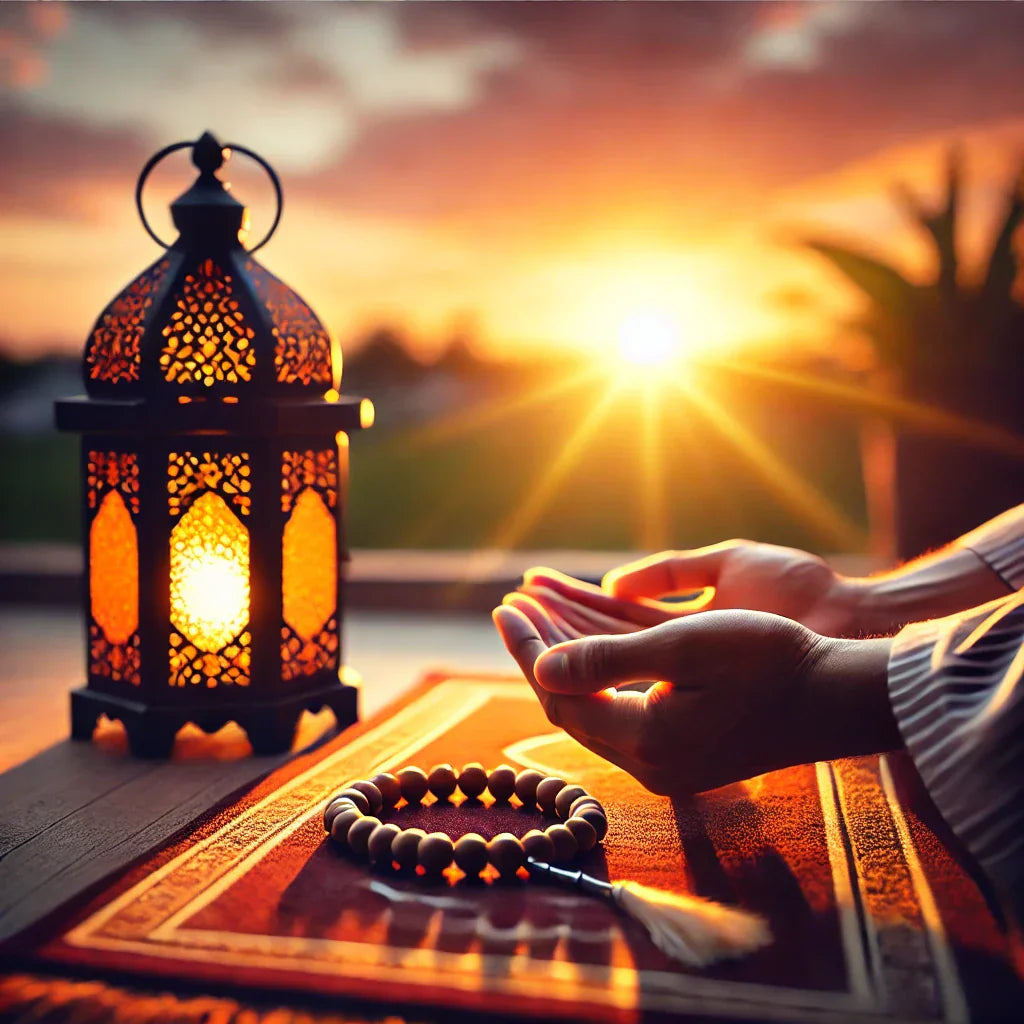Your Shopping Cart

Fasting Around the World – A Cultural Exploration
Tariq AzizDate: 13 February 2025
Introduction
While the essence of Ramadan remains universal, its cultural expressions vary across the globe. From the lantern-lit streets of Cairo to the bustling iftar markets of Jakarta, each country brings its unique flavour to this holy month. This blog takes you on a cultural journey, highlighting how Ramadan is celebrated worldwide.
1. Middle East
Egypt:
- Streets are adorned with colourful fanoos (lanterns), a tradition dating back to the Fatimid era.
- Popular dishes include koshari (a lentil and rice dish) and qamar al-deen (apricot juice).
Saudi Arabia:
- Mosques are filled with worshippers for taraweeh prayers, and dates from Madinah are a staple for breaking fast.
2. South Asia
Pakistan:
- Iftar spreads often feature samosas, pakoras, and rooh afza (a rose-flavoured drink).
- Communities gather in mosques for nightly Qur’an recitations.
Bangladesh:
- Streets come alive with vendors selling traditional items like jalebi and piyaju.
- Families engage in sehri preparations well before dawn.
3. Southeast Asia
Indonesia:
- Known for its vibrant pasar ramadan (Ramadan markets), offering a variety of snacks like kolak (a sweet coconut milk dessert).
- The call to prayer (adhan) echoes through neighbourhoods, uniting everyone in worship.
Malaysia:
- Bubur lambuk (a savoury porridge) is prepared and distributed for free at mosques.
- Ramadan bazaars showcase a variety of local delicacies.
4. Africa
Morocco:
- Traditional iftar includes harira (a hearty soup) and dates.
- Families gather for tea after taraweeh, enjoying Moroccan pastries.
Nigeria:
- The communal spirit shines as families and neighbours share meals.
- Tuwo shinkafa (rice dish) and spicy stews are common iftar staples.
5. Western Countries
- In the UK, mosques organise large iftar events for the community, welcoming people from all backgrounds.
- In the US, interfaith Ramadan dinners promote understanding and unity.
Conclusion
Ramadan is a celebration of diversity, uniting Muslims from every corner of the globe. Each culture’s unique traditions reflect the beauty of Islam’s universality, showing that while customs may differ, the essence of faith remains the same.






















































































